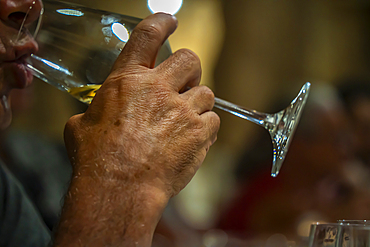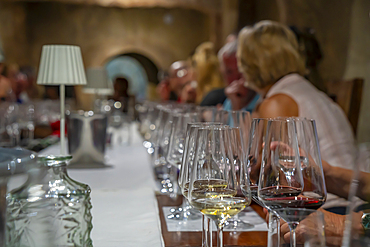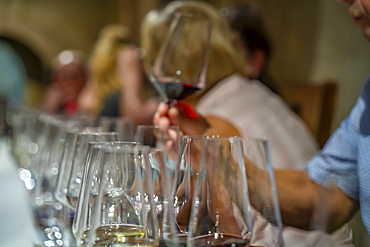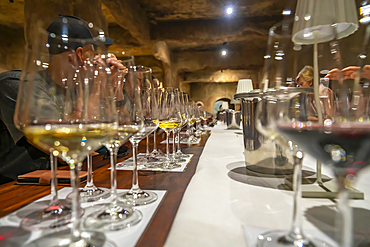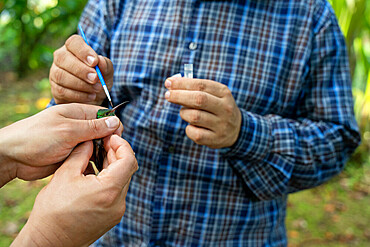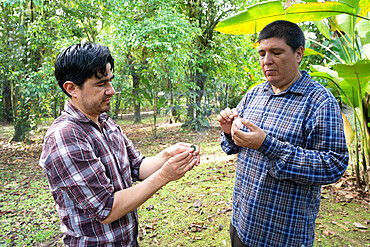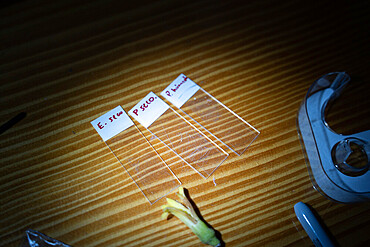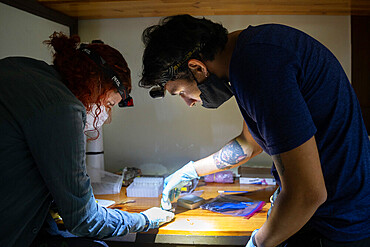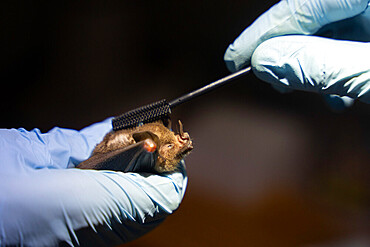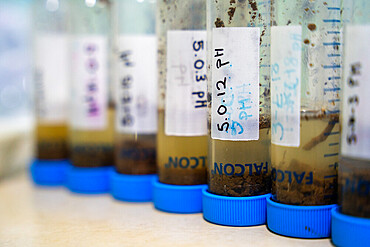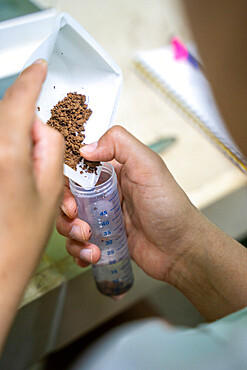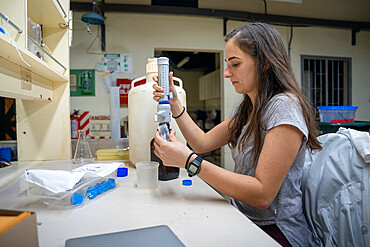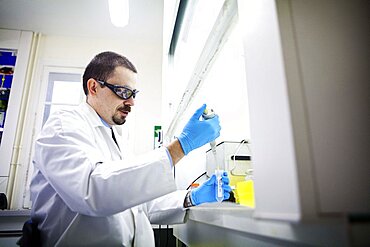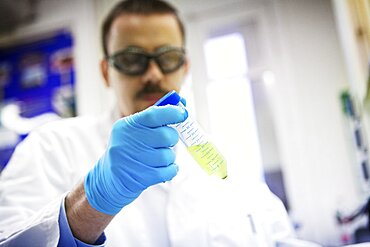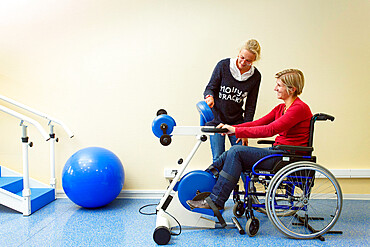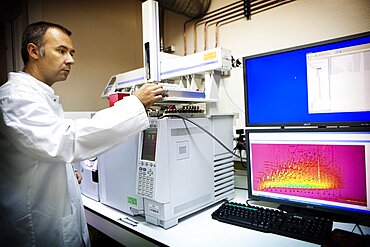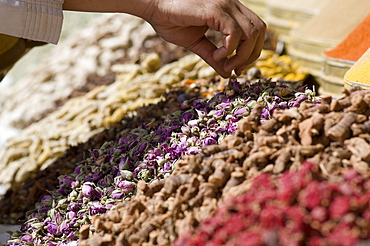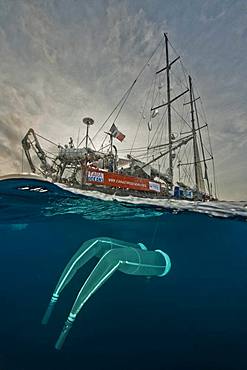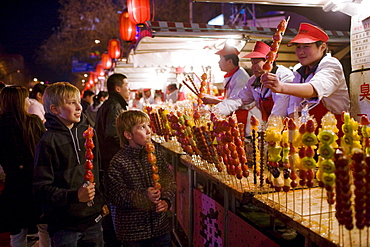Recent searches
Loading...
844-33653 - View of people sampling wine at Robertson Kooperatiewe Wynmakery, Robertson, South Africa, South Africa, Africa
844-33652 - View of people sampling wine at Robertson Kooperatiewe Wynmakery, Robertson, South Africa, South Africa, Africa
844-33651 - View of people sampling wine at Robertson Kooperatiewe Wynmakery, Robertson, South Africa, South Africa, Africa
844-33650 - View of people sampling wine at Robertson Kooperatiewe Wynmakery, Robertson, South Africa, South Africa, Africa
844-33647 - View of wine sampling cellar at Robertson Kooperatiewe Wynmakery, Robertson, South Africa, South Africa, Africa
844-33646 - View of wine sampling cellar at Robertson Kooperatiewe Wynmakery, Robertson, South Africa, South Africa, Africa
860-291440 - Researchers picking up pollen with a brush from the beak of a hummingbird Stripe-throated Hermit as part of a pollination study, rainforest at the "La Selva" research station in Puerto Viejo de Sarapiqui, Costa Rica
860-291438 - Researchers picking up pollen with a brush from the beak of a Rufous-tailed hummingbird as part of a pollination study, rainforest at the "La Selva" research station in Puerto Viejo de Sarapiqui , Costa Rica
860-291437 - Researchers picking up pollen using tape on the beak of a Rufous-tailed hummingbird as part of a pollination study, rainforest at the "La Selva" research station in Puerto Viejo de Sarapiqui, Costa Rica
860-291430 - Researchers applying a mascara brush to the hairs of a Sowell's short-tailed bat (Carollia sowelli) to test methods to capture pollen that bats may carry as part of a pollination study, rainforest at the "La Selva" research station in Puerto Viejo de Sarapiqui, Costa Rica
860-291429 - 3 microscope slides to analyze pollen transported on bat hairs, "La Selva" research station in Puerto Viejo de Sarapiqui, Costa Rica
860-291427 - Researchers applying tape to the hairs of a bat to test methods to capture the pollen it carries as part of a pollination study, rainforest at the 'La Selva' research station in Puerto Viejo de Sarapiqui, Costa Rica
860-291428 - Researchers applying a mascara brush to the hairs of a Sowell's short-tailed bat (Carollia sowelli) to test methods to capture pollen that bats may carry as part of a pollination study, rainforest at the "La Selva" research station in Puerto Viejo de Sarapiqui, Costa Rica
860-291422 - Earth diluted with water in order to extract the PH from the soil as part of a study on nitrogen exchanges between bacteria and the roots of legumes in the tropical forest of the "La Selva" research station in Puerto Viejo from Sarapiqui, Costa Rica
860-291420 - Earth diluted with water in order to extract the PH from the soil as part of a study on nitrogen exchanges between bacteria and the roots of legumes in the tropical forest of the "La Selva" research station in Puerto Viejo from Sarapiqui, Costa Rica
860-291419 - 27-year-old researcher working in a lab on nitrogen exchange between bacteria and the roots of legumes in the rainforest at the "La Selva" research station in Puerto Viejo de Sarapiqui, Costa Rica
1348-3928 - Clinical research in the GHICL. The physical medicine and rehabilitation department in Saint Philibert hospital in Lille, France. Exercises to develop the patient's muscle tone in functional rehabilitation, under the supervision of a doctor.
860-287451 - Tara Oceans Expeditions - May 2011. Surface plancton nets, deployed from Tara, Galapagos
860-287449 - Tara Oceans Expeditions - May 2011. Surface plancton nets, deployed from Tara, Galapagos
860-287450 - Tara Oceans Expeditions - May 2011. Tara with deployed plancton nets. On "station", the boat is drifting without engine or sails. Tara Oceans, a unique expedition: Tara Oceans is the very first attempt to make a global study of marine plankton, a form of sea life that includes organisms as small as viruses and bacterias, and as big as medusas. Our goal is to better understand planktonic ecosystems by exploring the countless species, learning about interactions among them and with their environment. Marine plankton is the only ecosystem that is almost continuous over the surface of the Earth. Studying plankton is like taking the pulse of our planet. Recently, scientists have discovered the great importance of plankton for the climate: populations of plankton are affected very rapidly by variations in climate. But in turn they can influence the climate by modifying the absorption of carbon. In a context of rapid physico-chemical changes, for example the acidification observed today in the world's oceans, it is urgent to understand and predict the evolution of these particular ecosystems. Finally, plankton is an astonishing way of going back in time ? a prime source of fossils. Over the eons, plankton has created several hundred meters of sediment on the ocean floors. This allows us to go back in time, to the first oceans on Earth, and better understand the history of our biosphere. More than 12 fields of research are involved in the project, which will bring together an international team of oceanographers, ecologists, biologists, geneticists, and physicists from prestigious laboratories headed by Eric Karsenti of the European Molecular Biology Laboratory. Galapagos
450-4306 - Sampling wine from underground vats, Nodari Wine Cellar, Velistsikhe, near Sighnaghi, Kakheti, Georgia, Central Asia, Asia
718-2067 - Geologists taking minerals samples on Gran Cratere (The Great Crater), Vulcano Island, Aeolian Islands, UNESCO World Heritage Site, north of Sicily, Italy, Mediterranean, Europe
1174-3103 - Close up of a man's hands holding soil samplesFarmer soil sampling, Gloucestershire, England
1174-1004 - A man sampling in a coffee processing shed, where staff make coffee in small pots and sample the taste to test the blend, New York state, USA
1174-1006 - The sampling procedure in a coffee processing shed, where staff make coffee in small pots and sample the taste to test the blend, New York state, USA
1174-1003 - A man examining and smelling the aroma of beans at a coffee bean processing shed, on a farm, New York state, USA
1174-1007 - The sampling procedure in a coffee processing shed, where staff make coffee in small pots and sample the taste to test the blend, New York state, USA
1161-5714 - Olive oil tasting shop, enoteca Toscana in Radda-in-Chianti, Tuscany, Italy
1161-5555 - Men picking Sangiovese Chianti Classico grapes at Pontignano in Chianti region of Tuscany, Italy
1161-6235 - Oak barrels of Rioja wine at Carlos San Pedro Bodega winery in medieval town of Laguardia in Basque country, Spain
1161-3681 - Boys eat candied strawberry sticks from stall in the Night Market, Wangfujing Street, Beijing, China
1113-19024 - Young women in traditional costumes sampling wines, Sitges, Catalonia, Spain, Europe
911-76 - PHD scientist Ian Bartholomew using dye tracing techniques as part of a study to measure the speed of the Russell Glacier near Kangerlussuaq, Greenland, Polar Regions
911-1323 - A scientist looking at peat erosion in the north Pennines, Cumbria, England, United Kingdom, Europe
911-5967 - Robert Simpson takes soil samples to measure the level of methanotropic bacteria during an experiment by scientists from Sydney University, in the Snowy mountains, New South Wales, Australia Pacific
911-71 - PHD scientist Ian Bartholomew using dye tracing techniques as part of a study to measure the speed of the Russell Glacier near Kangerlussuaq, Greenland, Polar Regions
911-138 - Water temperatures being taken from the meltwater river at the snout of the Russell Glacier near Kangerlussuaq in Greenland, Polar Regions
911-57 - PHD scientist Ian Bartholomew taking measurements as part of a study to measure the speed of the Russell Glacier near Kangerlussuaq, Greenland, Polar Regions
911-70 - PHD scientist Ian Bartholomew using dye tracing techniques as part of a study to measure the speed of the Russell Glacier near Kangerlussuaq, Greenland, Polar Regions
911-74 - PHD scientist Ian Bartholomew taking measurements as part of a study to measure the speed of the Russell Glacier near Kangerlussuaq, Greenland, Polar Regions
911-75 - PHD scientist Ian Bartholomew using dye tracing techniques as part of a study to measure the speed of the Russell Glacier near Kangerlussuaq, Greenland, Polar Regions
911-73 - PHD scientist Ian Bartholomew taking measurements as part of a study to measure the speed of the Russell Glacier near Kangerlussuaq, Greenland, Polar Regions
911-72 - PHD scientist Ian Bartholomew using dye tracing techniques as part of a study to measure the speed of the Russell Glacier near Kangerlussuaq, Greenland, Polar Regions
911-135 - PHD scientist Ian Bartholomew's theodolite measuring the speed of the Russell Glacier near Kangerlussuaq, Greenland, Polar Regions
911-139 - PHD scientist Ian Bartholomew using dye tracing techniques as part of a study to measure the speed of the Russell Glacier near Kangerlussuaq in Greenland, Polar Regions
911-1322 - A scientist looking at peat erosion in the north Pennines, Cumbria, England, United Kingdom, Europe
911-65 - PHD scientist Ian Bartholomew taking measurements as part of a study to measure the speed of the Russell Glacier near Kangerlussuaq, Greenland, Polar Regions
817-70723 - Port wine tasting, Port wine (Vinho do Porto), Oporto, Portugal
817-67479 - Sensor Laboratory, Sensor analysis, Meat products taste, AZTI-Tecnalia, Technological Centre specialised in Marine and Food Research, Sukarrieta, Bizkaia, Euskadi, Spain.
817-70703 - Port wine tasting, Port wine (Vinho do Porto), Portugal
817-67333 - Biological sampling of mackerel, Otoliths extraction, Fishing biology laboratory, AZTI-Tecnalia, Technological Centre specialised in Marine and Food Research, Pasaia, Gipuzkoa, Euskadi, Spain.
817-67330 - Biological sampling of mackerel, Otoliths extraction, Fishing biology laboratory, AZTI-Tecnalia, Technological Centre specialised in Marine and Food Research, Pasaia, Gipuzkoa, Euskadi, Spain.
817-67463 - Sensor Laboratory, Sensor analysis, Meat products taste, AZTI-Tecnalia, Technological Centre specialised in Marine and Food Research, Sukarrieta, Bizkaia, Euskadi, Spain.
817-67473 - Sensor Laboratory, Sensor analysis, Meat products taste, AZTI-Tecnalia, Technological Centre specialised in Marine and Food Research, Sukarrieta, Bizkaia, Euskadi, Spain.
817-67481 - Sensor Laboratory, Sensor analysis, Meat products taste, AZTI-Tecnalia, Technological Centre specialised in Marine and Food Research, Sukarrieta, Bizkaia, Euskadi, Spain.
817-67477 - Sensor Laboratory, Sensor analysis, Meat products taste, AZTI-Tecnalia, Technological Centre specialised in Marine and Food Research, Sukarrieta, Bizkaia, Euskadi, Spain.
817-67337 - Biological sampling of mackerel, Otoliths extraction, Fishing biology laboratory, AZTI-Tecnalia, Technological Centre specialised in Marine and Food Research, Pasaia, Gipuzkoa, Euskadi, Spain.
817-22829 - Fattoria (farm) di Cusona, Guicciardini-Strozzi wine producer, the Principe (prince) Strozzi in the winecellar, San Gimignano, Siena province, Tuscany, Italy.
817-28675 - The wine cellar, Luxury small Hotel and restaurant 'La Bastide de Marie' owner Sibuet Family from Megeve, Menerbes , Luberon, Vaucluse (84), Provence, France
817-27607 - Wine tasting in Maison de la Truffe et du Vin du Luberon, Menerbes, Luberon region, Vaucluse, Provence, France
817-26492 - Woman tasting rum, Hell-Bourg, Salazie cirque, Reunion Island (France)
817-25207 - Patrick Sanna testing wine at cellars of Comte Peraldi winery, Corsica Island, France
817-27404 - Saturday Fleamarket on the Weinzeile , Austrian Wine tasting, Shopping in Vienna, Austria
817-16360 - Lopez de Heredia winery: shop, Wine tasting, Architect: Zaha Hadid, Villa Tondonia, Haro, La Rioja, Spain
817-17038 - Wine tasting, Comenge winery, Ribera del Duero wine region, Curiel de Duero, Valladolid province, Castilla-Leon, Spain
450-3215 - Winegrower sampling his wine, Petrov, South Moravia, Czech Republic, Europe
700-11285 - Croatia, Dalmatia, Dalmatian Coast, Hvar Island
695-284 - Taking a sample from cask in cellar, Budapest, Hungary, Europe
746-16210 - Sampling thermal mud, CNR volcanology research, Aeolian Islands, Sicily, Italy
You reached the end of search results
